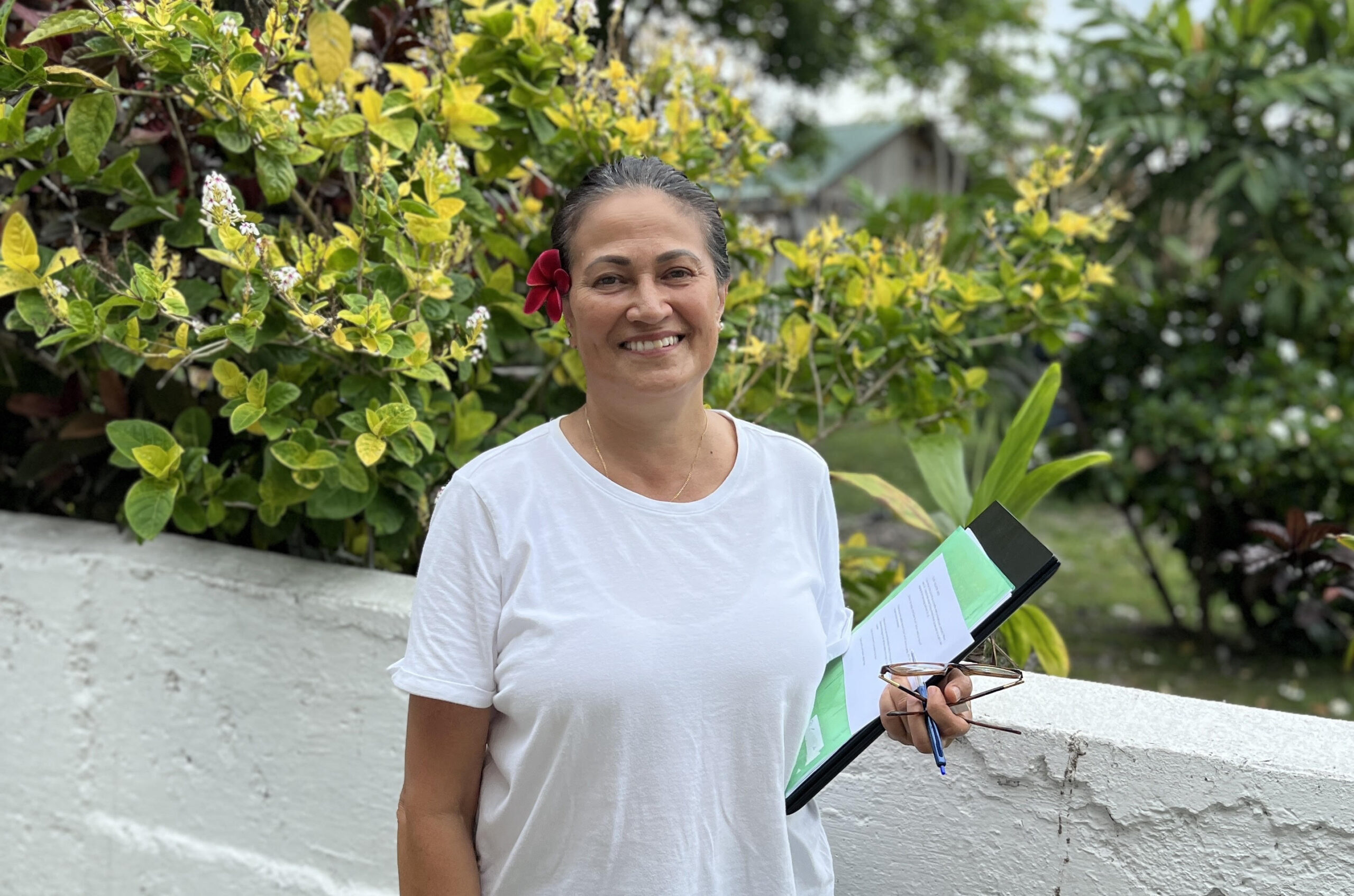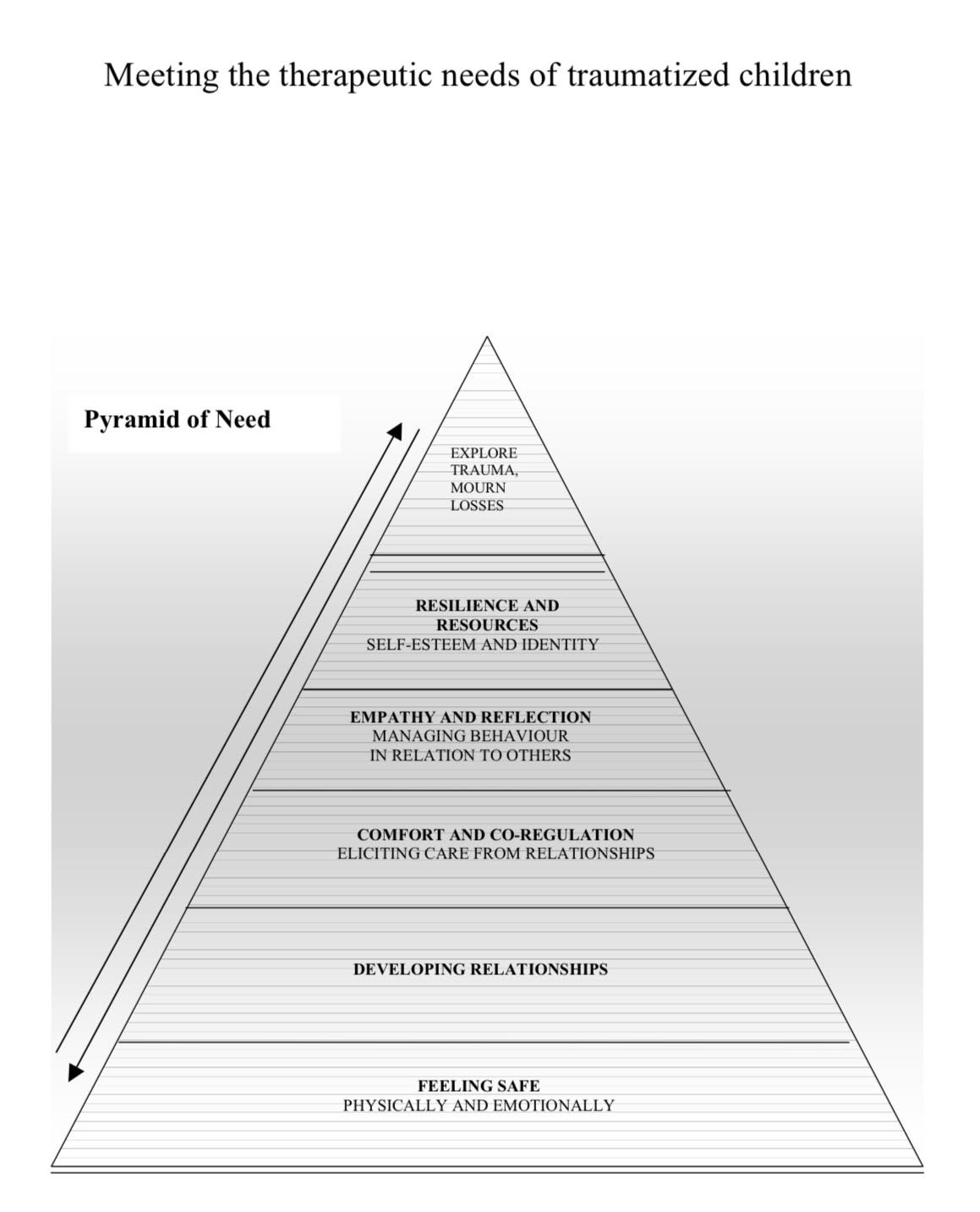We were all young once’: Youth social worker encourages calm and kindness
Saturday 3 February 2024 | Written by Candice Luke | Published in Education, Local, National

Sandra Cowen has 20 years of experience in community services. CANDICE LUKE/ 24020250
On the final day of Te Kainga O Pa Taunga mental health workshop at Sinai Hall yesterday, practising councillor Sandra Cowen addressed children and adolescents’ emotional problems and preventative strategies for frontline workers.
She has worked with young people in New South Wales, Queensland and now Rarotonga.
“Things I’ve experienced overseas I’m now noticing here in the community,” says Cowen.
“I’ve worked with children who are defiant, commit crimes, arson, and they want to go to juvenile (detention) to hang out with their mates there. Some of them have been diagnosed (with mental illness and learning disabilities) but they don’t stick to their treatment.”
She has identified undiagnosed illnesses and learning difficulties in local children. Autism, ADHD, bi-polar disorder, schizophrenia, delayed speech, intellectual impairment, and undiagnosed deafness can hinder growth and development.
One of the biggest influences on young people is social media.
“When they’re on social media constantly their brain is taking on everything. They hide behind it and aren’t as exposed to life like we were, so they don’t know how to deal with pain.”
Bullying on social media and in school can cause children to withdraw, so caregivers must remain vigilant, and create a safe space for children to open up and share their feelings.
“Children are so far advanced because of social media. It’s our job to bring them back to reality.”
Cowen says it’s up to the parents to be calm, build trust and respect to get positive engagement from children.
“We want them to ask questions. We don’t want them to be scared of us.
“Kids are only so tall. Sit on their level. Don’t talk down to them. Ask them how they are. It’s the little things we know but sometimes we get so taken over by our work.”
Cowen says when the end of your work day rolls around, it should be “tools down”.
“Go home and be with your family.”
When children transition into puberty and young adulthood, they may experience a drop in affection from their caregivers. A sense of abandonment can lead to defiant behaviour in a bid for attention and love, says Cowen.
“From a baby we nurture them, feed them, give all the attention they want. Then in mature childhood they’re building confidence, engaging in sports and group activities. Our part then is to cheer them on.
“When they become a teen and go through puberty, they start looking for social relationships, they want to be cool and accepted.
“When they become teens, we change our tone. They wonder what happened. At that stage it starts to get challenging.”
She says mutual respect is needed between parental figures and young people.
“We give them responsibilities but we forget to commend them. We forget to say kind things. Kill them with kindness, it saves the day.”
Cowen says a calm tone of voice will help when a child acts out. “They might not calm down immediately but they will know that someone is with them and listening.”
Emotional issues also include abuse (physical, psychological, verbal, sexual and neglect), rejection, lack of trust, low self-esteem, humiliation, and parents can pass on stress response genes to their children, making them more easily triggered by stressful situations.

Meeting the therapeutic needs of traumatized children - Pyramid of Need by Kim Golding 2015. KIMSGOLDING.CO.UK/ 24020251
Cowen uses the “Pyramid of Need” model by psychologist Kim Golding when dealing with clients and children in her life.
There is currently a shortage of medical professionals, funds and facilities to address this issue in Rarotonga. An attendee said, “At the end of the day the Government has their own agendas. The health of the people may be second to last on the priorities list.”
Cowen reminded the group, made up of frontline workers, that they shouldn’t take all of the responsibility, and there are higher levels of care that should be accessed for treatment.
She held the Government to account: “You vote for members of parliament. What are they doing? Make them work. Don’t give up!”
Cowen reminded attendees to take a breather before engaging with distressed youth.
“Yes, they act like they know it all, but let’s not forget, we were all young once.”














































